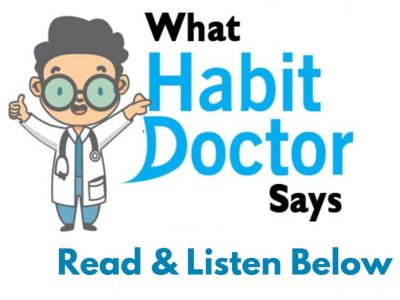There are a lot of myths that we believe in as a society. One of them is that you can only live a meaningful life if you pursue a career that you enjoy. That may be the case, but the pursuit of your passion can be just as rewarding, which is something that we tend to forget about. It’s hard not to admire Casey Neistat as a YouTuber and businessman. He frequently discusses how much he enjoys his job in his vlogs (most recently here). That’s why he preaches the mantra, “Find a job that you love and you won’t have to work a day in your life. “It’s not just him who thinks so. There are a lot of artists, athletes, and entrepreneurs who agree. Even Steve Jobs himself stated: “To succeed, you must discover what it is that you truly enjoy. What you do and the people you love are both examples of this. The only way to be truly satisfied with your work is to do what you believe to be excellent work. To be truly great at what you do, you must genuinely enjoy it. Keep searching if you haven’t found it yet.” I feel the same way. But it seems that many of us put too much pressure on ourselves to find our passion.
• We are incomplete unless we have a strong sense of passion.
• Our lives have no meaning if we don’t have passion for what we do.
Really? It’s as if we’re putting too much emphasis on the word ‘passion,’ these days. Yes, it’s critical, but don’t expect it to be a panacea for all of your ills. “If only I could find my passion,” some people lament. Then, I wonder, what’s next? Assume you’ve discovered your calling. But if you’re an idiot, you’ll be an idiot with a burning desire to be an idiot. When it comes to complaining, you’ll be a miserable complainer for life if you’re not careful. When you’re doing something you enjoy, don’t expect your life to improve by a factor of ten. It’s still LIFE. Life isn’t going to come to you; you have to get up, go to work, struggle, and deal with everything else. People often inquire as to how I came to discover my true calling. When I was younger, I had no idea what I wanted to do with my life. I had a lot of ideas about what I could have done. My life had been a misery prior to my current occupation. Not at all.
I’ll admit that I’ve been a fool and made stupid decisions in the past, but I’ve also worked hard, earned two college degrees, devoured countless books, travelled extensively, started and failed a few businesses, and always found a way to make the best of a bad situation. In 2015, I had the idea to write about the things I’d learned along the way. A few years ago, my mentors and close friends told me to do this. At the time, I didn’t give it much thought. But last year, it just happened by chance. Like a light bulb going off. Do not get me wrong: It is wonderful to wake up every day and look forward to the things you enjoy doing. However, it isn’t the only way to happiness. “So, what use does that data serve me? “As part of my research for the past year, I’ve been looking into how other people can help you discover your passion. But I haven’t come across any credible research on the subject. There is no evidence that doing XYZ will lead you to your PASSION.
Only neuroscientific research and “eureka” moments come close. Insights that come out of nowhere are the best. Also, identifying your life’s purpose can be as simple as having an “aha!” moment. The Eureka Factor is a book written by John Kounios and Mark Beeman that explores the phenomenon of epiphanies and the latest scientific findings on how to foster them. They scribble on the page: When an idea is lurking just below the surface of our consciousness, it’s easy to recognise it as a potential breakthrough.” It’s hard to put your finger on what exactly is causing this strange occurrence. “It’s like you’re about to sneeze,” says the author.
As a substitute for self-imposed pressure, you need something else that will lead you to that aha! moment. Continuing with Beeman and Kounious:“Cognitive psychologists use the term “intuition” to describe this experience, which they describe as an awareness of a new idea, solution, or perspective lurking in one’s subconscious, but not until it is brought to the surface of awareness. “Because you aren’t aware of it, you have no idea what your passion is. That is all. Don’t add to the confusion by over-complicating things. And don’t try to force it out of yourself. You don’t have to pop this pimple. What can I do to get more insights by stimulating my brain? Try new things and broaden your horizons. Consider things you’ve never thought about. Travel. Engage in social experimentation by meeting a variety of people. As your horizons expand, so does your pool of knowledge. Kounious and Beeman demonstrate that eureka moments are often the result of a combination of ideas that you’ve been exposed to.
Manage your feelings of anxiety and stress. Chronic stress and anxiety impair your ability to relax, concentrate, and think clearly. Those are essential to gaining new perspectives. In order to find your passion, you must first deal with the stress and anxiety you’re experiencing. Those are two critical steps that I believe most of us overlook. We get down to the nitty-gritty details like keeping a notebook by your bedside for quick notes.
But here’s the thing: In order to produce something, you need input. Your passion will come to you rather than you consciously think about it. It’s lurking somewhere within you, afraid to come out of hiding. You just have to believe that it will appear out of nowhere at some point. When that time comes, rejoice, and do whatever you want, but the following day, get up and get to work. In the same way that you are now.


